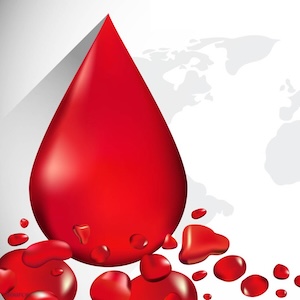Brief Reports
Vol. 3 No. 3 (2024)
Thrombin generation assay in COVID-19 patients shows a hypocoagulable pattern

Publisher's note
All claims expressed in this article are solely those of the authors and do not necessarily represent those of their affiliated organizations, or those of the publisher, the editors and the reviewers. Any product that may be evaluated in this article or claim that may be made by its manufacturer is not guaranteed or endorsed by the publisher.
All claims expressed in this article are solely those of the authors and do not necessarily represent those of their affiliated organizations, or those of the publisher, the editors and the reviewers. Any product that may be evaluated in this article or claim that may be made by its manufacturer is not guaranteed or endorsed by the publisher.
Received: 23 June 2024
Accepted: 2 October 2024
Accepted: 2 October 2024
2140
Views
542
Downloads
Similar Articles
- Silvia Linari, Renato Marino, Marzia Leotta, Antonio Coppola, Patrizia Di Gregorio, Augusto Bramante Federici, Flora Peyvandi, Cristina Santoro, Ezio Zanon, Rita Carlotta Santoro, The landscape of rare coagulation factor deficiency management in Italy: a national hemophilia center survey , Bleeding, Thrombosis and Vascular Biology: Vol. 4 No. 3 (2025)
- PO47 | Hemophilia A and antithrombin deficiency: a case of natural hemostatic rebalancing , Bleeding, Thrombosis and Vascular Biology: Vol. 4 No. s1 (2025)
- PO58 | Gender differences in primary haemostasis , Bleeding, Thrombosis and Vascular Biology: Vol. 4 No. s1 (2025)
- Alice Lipari, Esmeralda Capristo, Antonietta Ferretti, Erica De Candia, Anticoagulation in obese patients: challenges and strategies , Bleeding, Thrombosis and Vascular Biology: Vol. 4 No. 3 (2025)
- PO25 | Baseline thrombin generation test does not predict thrombotic events in acute leukemia: a monocentric prospective study , Bleeding, Thrombosis and Vascular Biology: Vol. 4 No. s1 (2025)
- Eleonora Petito, Anna Maria Mezzasoma, Emanuela Falcinelli, Chiara Conti, Erica De Candia, Raimondo De Cristofaro, Silvia Sorrentino, Gian Marco Podda, Mariangela Scavone, Anna Falanga, Marina Marchetti, Luca Barcella, Stefania Basili, Lucia Stefanini, Andrea Boccatonda, Laura Contino, Patrizia Sciancalepore, Igor Florio, Egidio Imbalzano, Rossella Marcucci, Angela Rogolino, Patrizia Noris, Marta Panella, Rita Santoro, Maria Costanza Turi, Gaetano Vaudo, Rosa Curcio, Paolo Gresele, Persistence of functional anti-PF4 antibodies and neutrophil activation in vaccine-induced immune thrombotic thrombocytopenia , Bleeding, Thrombosis and Vascular Biology: Vol. 4 No. 3 (2025)
- Roger Lijnen, Désiré Collen, The key to fibrinolysis and thrombolysis , Bleeding, Thrombosis and Vascular Biology: Vol. 4 No. 3 (2025)
- PO69 | Whole blood thrombin generation hypercoagulable profile in a patient with hemolytic crisis due to paroxysmal nocturnal hemoglobinuria: a case report , Bleeding, Thrombosis and Vascular Biology: Vol. 4 No. s1 (2025)
- CO15 | Longitudinal coagulation profiling of individuals undergoing gender-affirming hormone therapy: the hyper-gender study , Bleeding, Thrombosis and Vascular Biology: Vol. 4 No. s1 (2025)
- Samantha Pasca, Cristina Santoro, Chiara Ambaglio, Marisanta Napolitano, Marta Milan, Letizia Natali, Silvia Nannizzi, Filippo Mori, Paolo Simioni, Ezio Zanon, Comparison among three different bleeding scores and the thrombin generation assay to assess the different hemorrhagic phenotypes in patients with FVII deficiency , Bleeding, Thrombosis and Vascular Biology: Vol. 1 No. 2 (2022)
1-10 of 124
Next
You may also start an advanced similarity search for this article.
Most read articles by the same author(s)
- Giovanni Tiscia, Elvira Grandone, Talking about assisted reproductive techniques and thromboembolic risk: everything we always wanted to know , Bleeding, Thrombosis and Vascular Biology: Vol. 1 No. 2 (2022)
- Roberto Mario Santi, Annamaria Fulghesu, Ezio Zanon, Erica De Candia, Elvira Grandone, Giancarlo Di Renzo, Claudia Succu, Valentina Tosto, Vincenzina Bruni, Paolo Gresele, Diagnosis and management of abnormal uterine bleeding in adolescence , Bleeding, Thrombosis and Vascular Biology: Vol. 3 No. 1 (2024)
- Francesco Marongiu, Elvira Grandone, Silvia Marongiu, Antonella Mameli, Doris Barcellona, Stroke in women: anticoagulation in a complicated puzzle , Bleeding, Thrombosis and Vascular Biology: Vol. 3 No. 2 (2024)
- Daniela Poli, Riccardo Tartaglia, Doris Barcellona , Paolo Bucciarelli , Antonio Ciampa, Elvira Grandone, Giuseppe Malcangi, Giuseppe Rescigno, Vincenzo Toschi, Sophie Testa, Alessandro Squizzato, Attitude to clinical research among health professionals affiliated with the Italian Federation of Centers for the Diagnosis of Thrombotic Disorders and the Surveillance of the Antithrombotic Therapies (FCSA) , Bleeding, Thrombosis and Vascular Biology: Vol. 2 No. 1 (2023)










